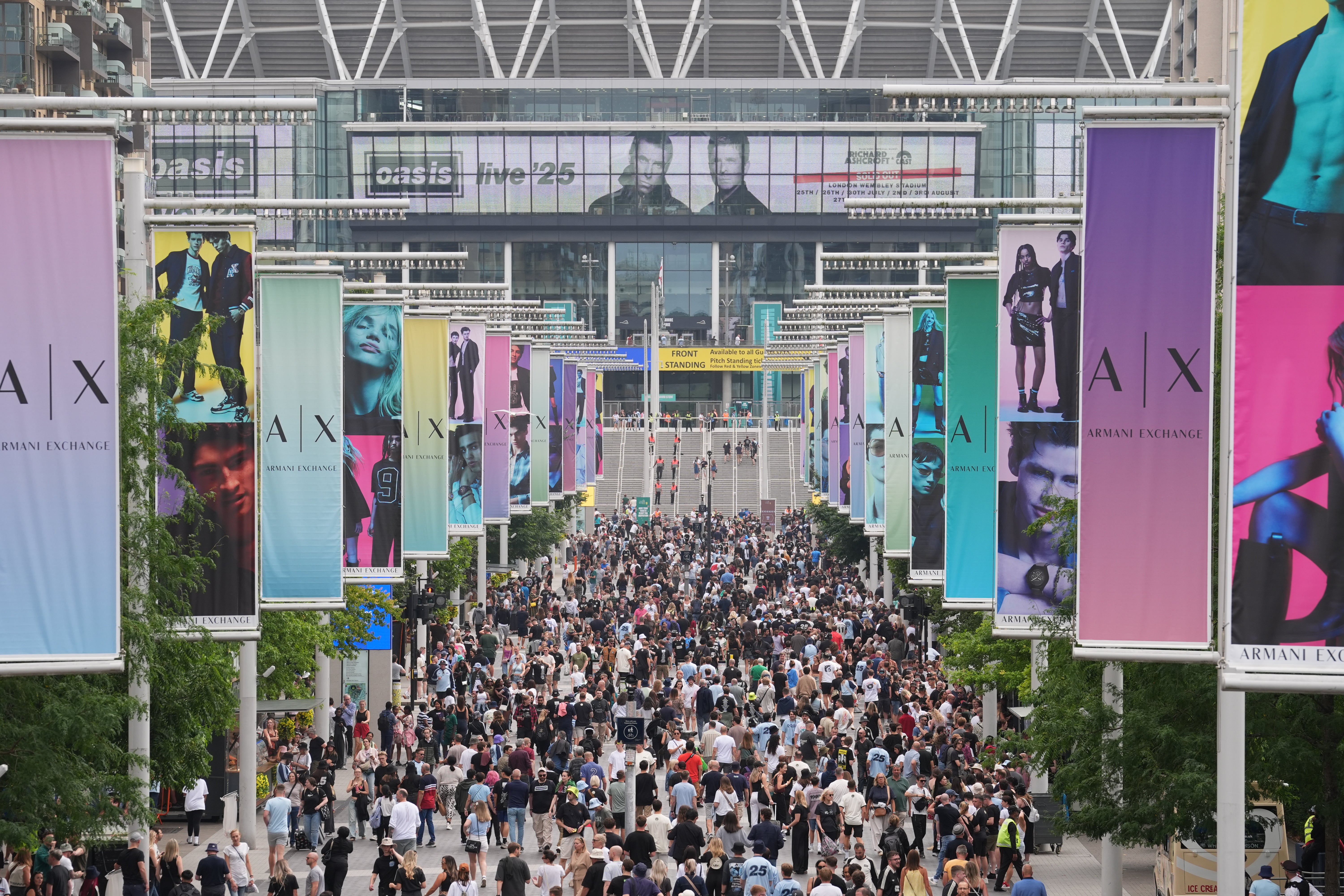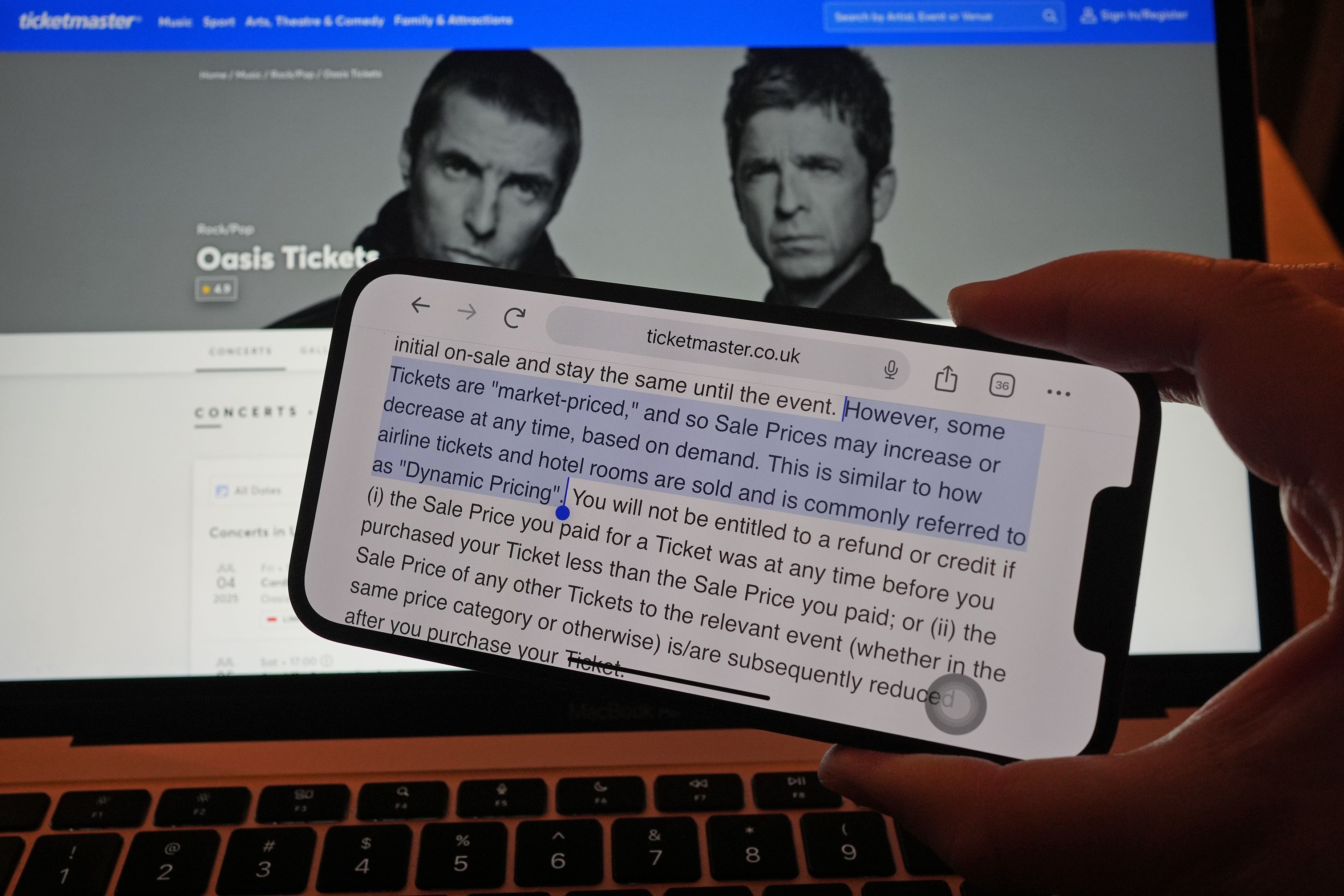Ticketmaster has pledged to enhance transparency for concertgoers, promising clearer information on ticket pricing and availability following an investigation by the Competition and Markets Authority (CMA).
Under the new commitments, fans joining online queues will be shown the full range of ticket prices and receive regular updates as cheaper seats sell out.
Buyers will also be informed at least 24 hours before a sale begins if tiered pricing is in effect, along with a clear explanation of what this entails.
The competition regulator stated that these formal commitments from Ticketmaster are designed to “make sure fans have the information they need when they spend their hard-earned cash to see the artists they love”.
These changes stem from a CMA investigation into Ticketmaster’s handling of Oasis ticket sales in 2024.
The probe revealed that fans waiting in lengthy queues were not informed that standing tickets were being sold at two different price points, nor that prices would increase once the cheaper options were exhausted.

Furthermore, the CMA found that Ticketmaster sold some “platinum” tickets at nearly two and a half times the cost of “standard” tickets, without adequately explaining that these offered no additional benefits within the same areas of the venue.
In response, the CMA said Ticketmaster must now tell fans 24 hours in advance if a tiered pricing system is being used – as it was for Oasis standing tickets.
This means fans will know beforehand if there are multiple prices for the same type of ticket, and that more expensive ones will be released once the cheapest sell out.
Ticketmaster must also provide more information about ticket prices during online queues, helping fans anticipate how much they might have to pay.
This includes setting out the range of prices available for the event when people join the queue and updating fans swiftly when the cheaper tickets sell out.
Ticketmaster must also describe tickets accurately and not use any misleading labels to avoid giving the impression that one ticket is better than another when that is not the case.
Ticketmaster must now regularly report how it has implemented the undertakings over the next two years to ensure “robust” compliance, with any failure to do so resulting in possible enforcement action.

While many fans were under the impression that Ticketmaster used an algorithmic pricing model during the Oasis sale – with ticket prices adjusted in real time according to changing conditions such as high demand – also known as “dynamic pricing”, the CMA had not found evidence that this was the case.
CMA chief executive Sarah Cardell said: “Fans who spend their hard-earned money to see artists they love deserve to see clear, accurate information, upfront.
“We can’t ensure every fan gets a ticket for events as popular as the Oasis tour, but we can help ensure that next time an event like this comes along, fans have the information they need, when they need it.
“The changes we’ve secured will give fans more information about prices and clear descriptions of exactly what they are getting for their money. If Ticketmaster fails to deliver on these changes, we won’t hesitate to take further action.”
The CMA said Ticketmaster had made the commitments voluntarily and without any admission of wrongdoing or liability.
Ticketmaster said: “We welcome the CMA’s confirmation there was no dynamic pricing, no unfair practices and that we did not breach consumer law.
“To further improve the customer experience, we’ve voluntarily committed to clearer communication about ticket prices in queues. This builds on our capped resale, strong bot protection and clear pricing displays — and we encourage the CMA to hold the entire industry to these same standards.”


.png?trim=0,0,0,0&width=1200&height=800&crop=1200:800)